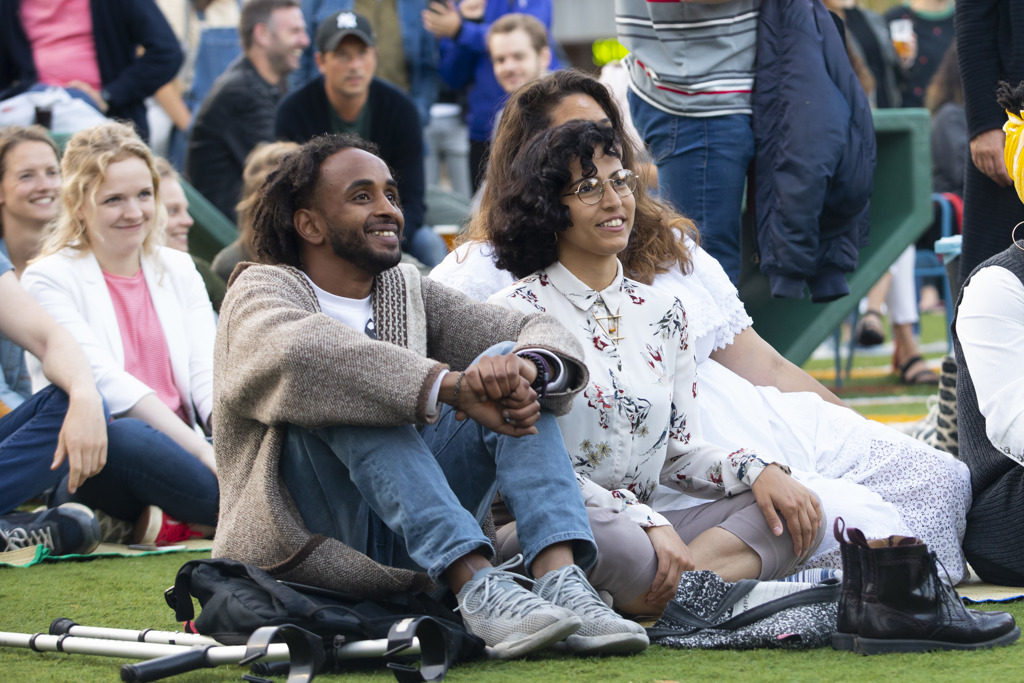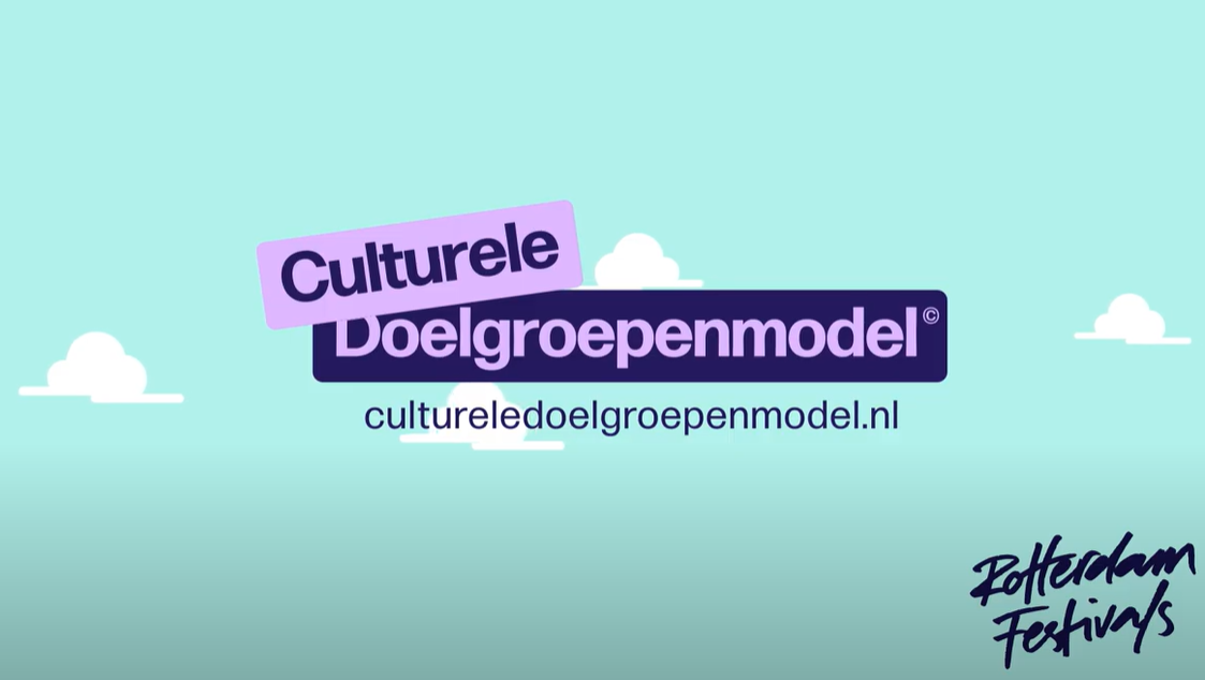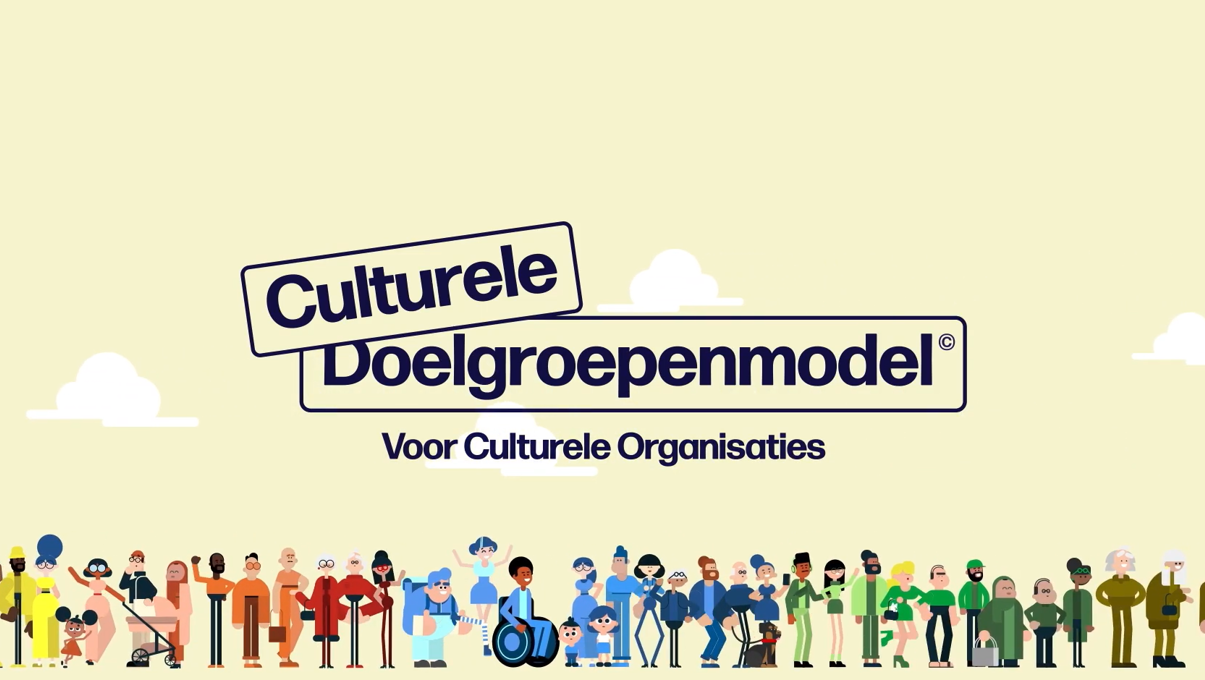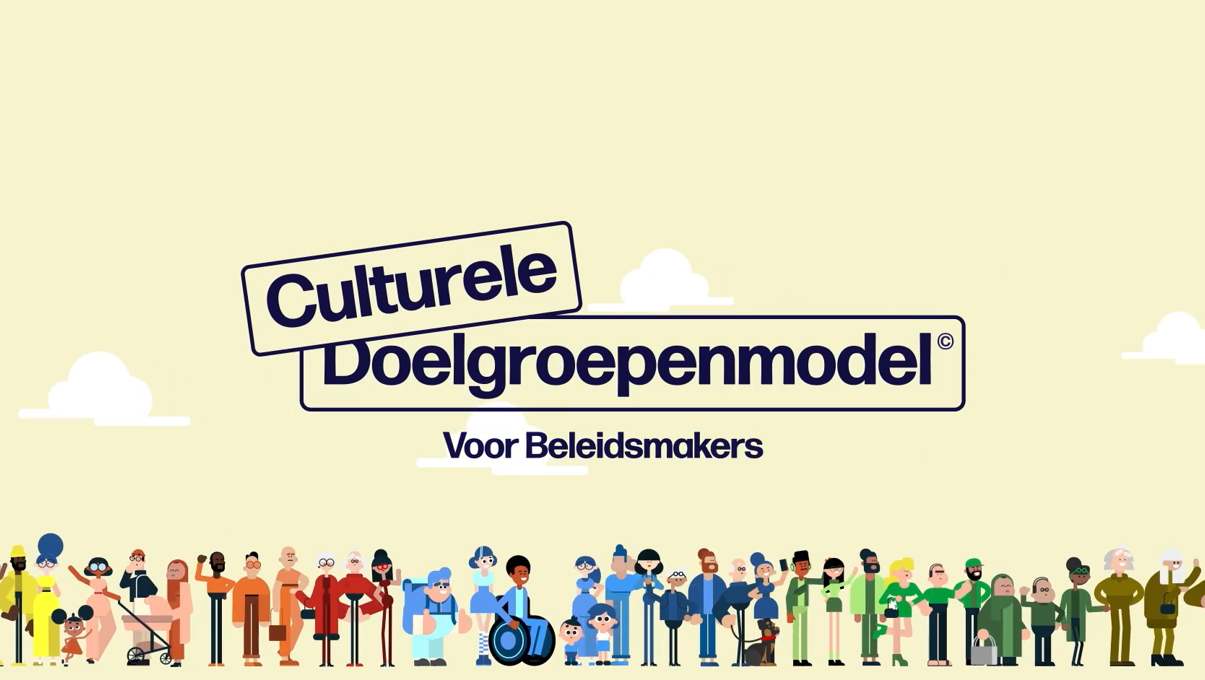Who visits arts & culture? Who is not a visitor yet, or does not visit arts and culture very often? To gain more insight into cultural audiences and to encourage visitors to take part in arts & culture events, Rotterdam Festivals has developed the Cultural Segmentation Model©.
The Cultural Segmentation Model
Understanding (potential) cultural audience
The Cultural Segmentation Model© was specifically designed for the cultural sector and provides insight into various characteristics of the current audience and target groups, including:
• stage of life;
• demographics (location, age);
• socio-economic situation (education, income);
• media usage and internet usage;
• cultural- and other interests and behaviour.
The Cultural Segmentation Model is based on consumer data combined with data on cultural behaviour and preferences. The model differentiates between three main groups of cultural audiences, namely Intensive, Medium and Light, depending on the use (frequency and diversity) of the current arts & culture activities. Within these three main groups, 11 Cultural Segmentation Groups were defined, with names such as the Cultural Omnivores, Active Entertainment Fans and Dashing Pleasure Seekers. Every household in the Netherlands can be categorized as a particular type of cultural audience – simply by using their address.
At least once every seven years, an update is needed because the world, our society and the city of Rotterdam are constantly changing. The most recent update took place in 2021.
In addition, the model is continuously being developed and new features are added.
We do this by conducting our surveys and by incorporating the results of other studies into the model. For example, Rotterdam Festivals has recently conducted a national study into the thresholds, motivations and information needs of audiences who visit arts & culture.
Arts & culture for everyone – that’s our goal
One language for the entire cultural sector
Although developed in Rotterdam, the Cultural Segmentation Model© is used throughout the Netherlands. It offers clear guidelines and a structure not only to cultural organisations and festival organisers but also to municipalities and the government.
The audience reached by individual cultural organisations
Gaining insight into the current and potential target groups helps cultural organisations to make the right choices in terms of policy, programming and marketing & communication. Is your target group prepared to spend very little money on culture? This is relevant information when you determine the ticket price. Does your target group mainly travel by public transport? This is relevant information for the venue you select. The more you know about your target audience, the better you can reach, engage and keep them. This means that the Cultural Segmentation Model – combined with your own organisation’s expertise and marketing information – will lead to a more focused approach. It’s an art to make the right decisions when it comes to organising cultural events.
The audience reached by the cultural sector collectively
The Cultural Segmentation Model© is an important tool for large cities such as Rotterdam, Utrecht and The Hague – but also for other cities and smaller municipalities in the Netherlands. Mapping and understanding the audiences we collectively reach with arts and culture events is crucial. Who do we reach and who are we not reaching yet? Are there any differences between new and well-established institutions, between museums and stages for theatre and music performances, and between certain areas and neighbourhoods? This kind of information offers us better insight into and practical guidance for organisations providing subsidies and grants, financial support and also for the Dutch government to determine cultural policy, to monitor its effects, to adjust and evaluate where needed.
Rotterdam Festivals is part of the DEN Taskforce Publieksdata (Audience Data). This is a national collaboration intended for everyone dealing with audience data and for organisations focusing on cultural participation. This Taskforce has partly been funded by the Dutch Ministry of Education, Culture and Science and will continue until at least the end of 2024.
More information on the Cultural Segmentation groups
The 11 different types of audiences are explained in the interactive pdf of the Cultural Segmentation Model©. This Dutch digital brochure is regularly updated with new information about the target groups. An English download with more information about the Cultural Segmentation Model can be found here.
Dashboard and knowledge sessions
To gain more insight into each target group, there is a dashboard with valuable information about the interests and preferences of the cultural audiences. Rotterdam Festivals regularly organises knowledge sessions to share information about the Cultural Segmentation Model. Please note that both the dashboard and the knowledge-sharing sessions are in Dutch.




